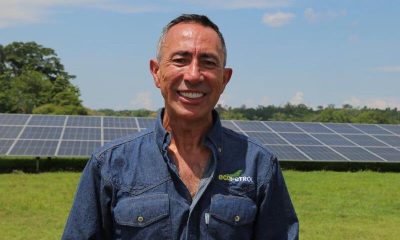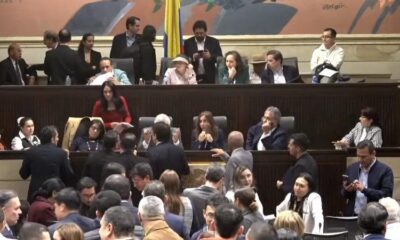Pension Reform Trudges Forward in Colombia as El Niño Gives Way to La Niña
While the politicians have taken the gloves off and are back to their vitriolic, unhelpful best, the pension reform is slowly creeping through committees and votes in Colombian congress. There is a way to go. But perhaps, after months of chunterring, perhaps the pension fund administrators (AFPs) and others need to start preparing themselves for a new paradigm.
In another shift: El Niño who? The little boy has almost been forgotten already. Yesterday’s news. Reservoir levels, according to XM, are still only at 39.5%, but that is a long way above the 27% critical threshold seen previously, and all eyes are now on La Niña.
When it rains in Colombia, it really rains.
When pushed by colleagues about “rainy London,” I discovered that even in a normal weather pattern, Medellín receives 6x the rainfall of London. La Niña is a whole new level.
From Fedesarrollo, we saw data this week for an April improvement in retail confidence (15.3%) while industrial confidence (-3.4%) was little changed month-over-month. For choice, there was a better beat to the future outlook while both numbers were well up on April 2023. Last week we also saw a modest increase in consumer confidence (-11.4%) from the -13% in March. These numbers continue to move around month to month.
From the National Administrative Department of Statistics (DANE), we had the latest import data (March) and there was another decline of 18.8% to $4.8 billion USD. Across the board — from agriculture to manufactured goods to raw materials — there were sizable declines. And despite exports also struggling in March, the trade deficit improved to $686 billion US versus just over $1 billion USD 12 months ago. Again, this is a reflection of declining domestic demand.
READ MORE: Petro’s Reform Plans Stagnate as Colombia Sits at an Impasse
Ecopetrol was also in the news this week. Moody’s Ratings lowered its rating from ba3 to b1 and raised the outlook from negative to stable due to the increased debt requirements and cash flow situation. Reserves were also a slight concern. Also, Finance Minister Ricardo Bonilla made mention of increasing production to 1 million bpd — which would be a 30% increase from where we are today. We have heard this for years, since the days of former President Iván Duque and ex-Ecopetrol head Felipe Bayon, and it still seems fanciful. It would be most welcome news but Colombia, no doubt, but for several years now, the industry simply isn’t coming up with the new reserves it would require and needs to move on from the obsession with oil.




























